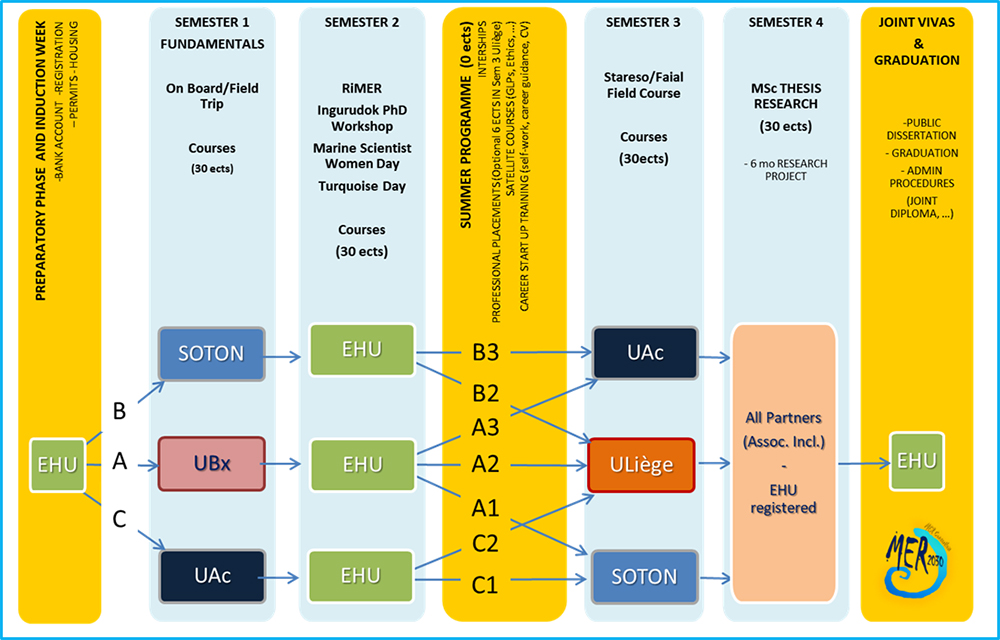As a part of the construction of the EHEA, a pivotal goal of this EMJMD Programme is to promote international and European cultural exchange and interactions between students. Student mobility is designed with this objective.
A pivotal goal of the Programme is to promote international and European cultural exchange and interactions among students. Thus, throughout the coursework, students can make a selection between seven alternative mobility pathways:
- A1 (UBx-UPV/EHU-Soton);
- A2 (UBx-UPV/EHU-ULiège);
- A3 (UBx-UPV/EHU- UAc);
- B2 (Soton-UPV/EHU-ULiège);
- B3 (Soton-UPV/EHU-UAc);
- C1 (UAc-UPV/EHU-Soton); and
- C2 (UAc-UPV/EHU-ULiège)
Through any of these pathways, the students have the opportunity to travel, from molecular biology to remote sensing issues and from short-term phenomena (e.g. tides and intertidal variability) to their long-term consequences (e.g., ocean acidification); thus achieving a translational science background.
The MSc Thesis research work can be entirely, or jointly, undertaken in SOTON, UPV/EHU, UBx, UAc and ULiège or in an associated institutions in Europe or overseas. All the MSc Theses are presented at Joint Viva Sessions at the 2nd week of September, in UPV/EHU, with members of all the Partner universities, staff from associates and external (invited) examiners.
Each student therefore studies at least three universities and up to four universities and visits additional locations such as Stareso (Corsica), for those following Semester 3 in ULiège, Okeanos (Faial), for those following Semester 3 in UAc, or Associates, during the realisation of the Professional Placement or research internships individually offered in summer after Semester 2.
Student mobility provides the students with the opportunity to interact with staff from different countries and environments; further to identify the area of research to which they are best suited.
The mobility and the integrated RiMER course provide the students with an almost complete overview of the research fields, relevant to marine environment and resources.
Students improve also their skills in English and other languages (French, Portuguese, Spanish and Basque).
MER students interact also with students enrolled in local Master courses at each institution, providing them with a supplementary perspective.
MOBILITY SCHEME AND JOINT AND «SATELLITE» ACTIVITIES
